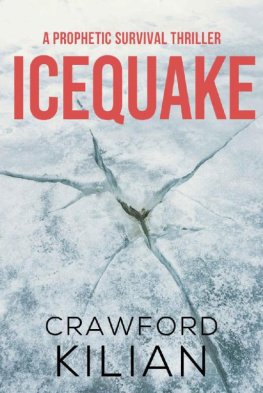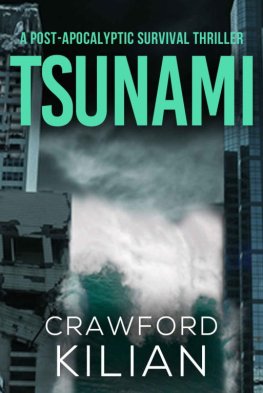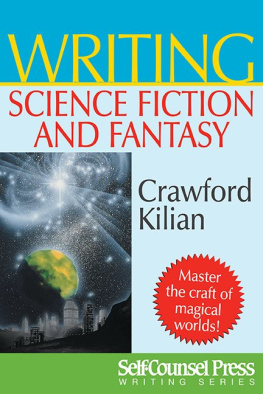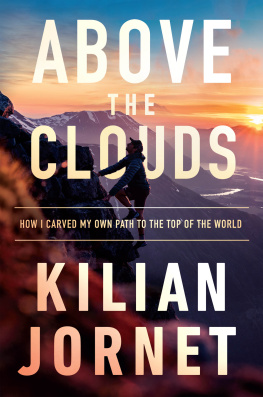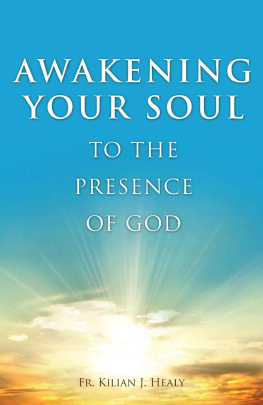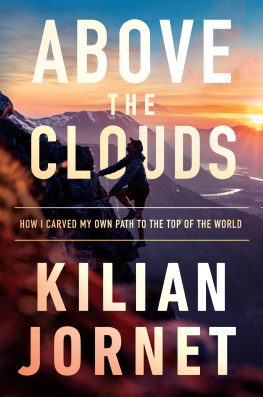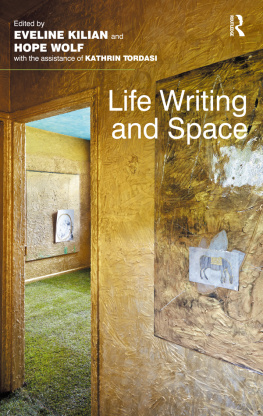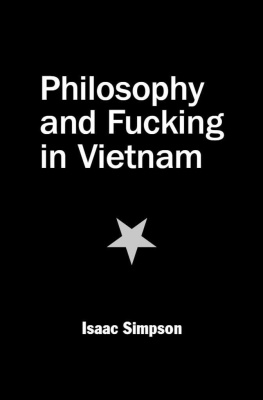Crawford Kilian - Icequake: A Prophetic Survival Thriller
Here you can read online Crawford Kilian - Icequake: A Prophetic Survival Thriller full text of the book (entire story) in english for free. Download pdf and epub, get meaning, cover and reviews about this ebook. year: 2017, publisher: Venture Press, genre: Science fiction / Adventure. Description of the work, (preface) as well as reviews are available. Best literature library LitArk.com created for fans of good reading and offers a wide selection of genres:
Romance novel
Science fiction
Adventure
Detective
Science
History
Home and family
Prose
Art
Politics
Computer
Non-fiction
Religion
Business
Children
Humor
Choose a favorite category and find really read worthwhile books. Enjoy immersion in the world of imagination, feel the emotions of the characters or learn something new for yourself, make an fascinating discovery.
- Book:Icequake: A Prophetic Survival Thriller
- Author:
- Publisher:Venture Press
- Genre:
- Year:2017
- Rating:5 / 5
- Favourites:Add to favourites
- Your mark:
- 100
- 1
- 2
- 3
- 4
- 5
Icequake: A Prophetic Survival Thriller: summary, description and annotation
We offer to read an annotation, description, summary or preface (depends on what the author of the book "Icequake: A Prophetic Survival Thriller" wrote himself). If you haven't found the necessary information about the book — write in the comments, we will try to find it.
Icequake: A Prophetic Survival Thriller — read online for free the complete book (whole text) full work
Below is the text of the book, divided by pages. System saving the place of the last page read, allows you to conveniently read the book "Icequake: A Prophetic Survival Thriller" online for free, without having to search again every time where you left off. Put a bookmark, and you can go to the page where you finished reading at any time.
Font size:
Interval:
Bookmark:
Crawford Kilian
ICEQUAKE
To all the Kilians, and to the memory of James De Mille (1833-1880), Canadas first explorer of the fabled Antarctic.
New Shackleton Station Personnel, January 1985.
Major Hugh Adams, 50, (NZ), Base Leader
Dr Carter Benson, 38, (UK), Assistant leader, geophysicist
Penelope Constable, 32, (US), Journalist
Dr Ray Crandall, 35, (CAN), Computer operations
Suzy Dolan, 37, (AUS), Assistant cook
Terence Dolan, 38, (AUS), Cook
Gordon Ellerslee, 32, (CAN), Drilling engineer
Dr Will Farquhar, 29, (UK), Glaciologist
George Hills, 42, (CAN), Carpenter
Dr Steven Kennard, 34, (CAN), Seismologist
Reginald Lewis, 29, (AUS), Electrician
Sean McNally, 27, (UK), Climatologist (student)
Alfred Neal, 44, (US), Pilot/aircraft mechanic
Dr Herman Northrop, 41, (CAN), CANDU reactor operations
Howard ORourke, 28, (CAN), Vehicle driver/mechanic
Simon Partington, 30, (NZ), Vehicle driver/mechanic
Dr Gerard Roche, 33, (CAN), Geophysicist
Bruce Robinson, 26, (AUS), Radio operator/technician
Dr Colin Smith, 37, (AUS), Meteorologist
Jeanne Taylor, 23, (NZ), Glaciologist (student)
Donald Treadwell, 39, (UK), Stores clerk
Timothy Underwood, 27, (CAN), Seismologist (student)
Dr Katerina Varenkova, 42, (USSR), Physician
Thomas Vernon, 38, (NZ), Diesel mechanic
Dr Benjamin Whitcumb, 30, (US), Palaeontologist
Dr Max Wilhelm, 40, (NZ), Geologist
Roger Wykstra, 29, (AUS), Radio operator/technician
Chapter 1 Shacktown
Penny Constable woke up suddenly and looked at her wristwatch. The glowing orange light-emitting diodes told her it was 0503 hours, Thursday, February 7, 1985. With any luck, it would be her last day in Shacktown.
The cubicle was dark. In the bunk below, Jeanne Taylor moved restlessly in her sleep. The huts humidifier was whining away in the corridor outside, but the air was still too dry for comfort; Pennys nose was stuffy, and her tongue felt thick. She reached up to touch the cold, rough plywood ceiling. A few metres above the roof of the hut were the curved steel plates that covered Tunnel B, and above that was the empty whiteness of the Ross Ice Shelf. To the right and left of Tunnel B, separated by metres of solid ice, were the other tunnels of New Shackleton Station; to walk the full length of the station, from the end of the snow mine to the doors of the hangar, took only five minutes. After thirty-seven days here she knew every square centimetre of the place, and she hated it all.
Insomnia in the Antarctic was usually a problem only for people wintering over. The weather had been so bad, though, throughout this austral summer, that almost no one had been able to get outside. Over half of Shacktowns normal summer population hadnt even arrived this year: bad weather and impossible radio conditions had forced many scientists to postpone their projects, and many of those who had managed to reach the station were stymied by lack of equipment or support personnel. Penny and Jeanne, a student glaciologist, had waited in Christchurch for over a week last December before a break in the radio blackout had enabled their Air New Zealand DC-10 to leave for McMurdo Station; thanks to the same break, Shacktown had sent its Twin Otter to McMurdo to pick up the two women and some supplies.
Since New Years Day, however, the radio blackout had continued almost without a pause, and katabatic winds, raging down the glacier valleys from the polar plateau, had brought day after day of Condition One: blizzards, bitter cold and whiteouts. Only Gerry Roche and Carter Benson, the geophysicists, had been happy to observe the massive solar flares and resulting magnetic storms that had caused the radio blackout and even knocked out polar-orbit communications satellites.
Blackouts, whiteouts. And a handful of grey-faced troglodytes trapped under the ice.
Penny could still savour a sour enjoyment of the irony of her predicament. As a little girl in Connecticut shed loved being snowbound, safe inside the artificial worlds of her home and a book, knowing that outside was a cold anarchy held at bay. So when the Ottawa office of the Commonwealth Antarctic Research Programme had asked Science Progress magazine for a staff writer to visit New Shackleton, shed asked at once to be sent. Even the bad political climate between the US and the rest of the Western world hadnt discouraged her. CARP was doing important work, after all, work that was almost unreported in the States; shed be the first American journalist in years to cover the story.
Penny turned in her sleeping bag, trying to find a warm spot. A fat lot of good shed accomplished. The only really big story had been the Roche Event in early January, when the earths magnetic field had abruptly vanished and then begun to grow again, reversed in polarity. She still remembered Gerry Roches expression when his magnetograph had begun to trace straight lines, like the last cardiogram of an old friend. But that story would be ancient history by the time she got home.
There was Steve Kennards work, of course. The Canadian seismologist had confirmed the fact that East and West Antarctica stood on separate plates of the earths crust, with the boundary between them running through the Transantarctic Mountains. But he also believed a major earthquake was due somewhere in those mountains (despite the fact that Antarctica was known to be seismically quiet) and he even thought such a quake might cause a surge of the ice sheet into the Southern Ocean. Good material for the National Inquirer, maybe, but not for a serious science magazine. Steve hadnt been very helpful, anyway; he was suspicious that someone like Penny would sensationalise his theories before hed published them in some bastion of orthodoxy like Nature.
Even that story wasnt really new. In her already-packed kit bag Penny had a draft article in which she pointed out that ice-sheet surges had been talked about since the early 1960s; people in the US Defence Department had even discussed the idea of starting such a surge with hydrogen bombs. If the theory had appealed to the people whod given the world Vietnam, Chile and the Bay of Figs, it was pretty surely nonsense.
What else? The Shelf Drilling Project? That was just a rerun of what the Americans had done back in the 70s. Will Farquhar, the stations glaciologist, and Jeanne had learned a lot about the Shelf and the almost lifeless sea beneath it. but nothing really surprising.
Ben Whitcumbs fossils? Great, if you really cared about therapsid populations in the Permian West Antarctic. She was being unfair, she knew; Ben, the sole American scientist here, was a prick, an all-too-typical modern US careerist right down to his crewcut hair and right-wing politics. His sermons on President Wood and the official American policy of Dynamic Self-Reliance had been as boring as his lectures on therapsid endothermic ability. Ben was the kind of scientist shed come here to escape.
There was Herm Northrop, the Canadian engineer who kept the whole operation going with his CANDU reactor. Sure, it was controversial. The reactor was too powerful for the stations needs; the Canadians had supplied it and Herm more for propaganda than in the interests of research. But it was still an elegant, exquisitely automated feat of high technology, and Herm had been glad to explain it to her. She felt good about the article shed written on him and the CANDU.
After that, though, Shacktown offered only human-interest stories: Terry and Suzy Dolan, the Australian cooks who squabbled all day and screwed all night; Katerina Varenkova, the Russian exchange physician who chain-smoked Rothmans, beat everyone at chess and was homesick for Vostok, the Soviet base where her husband Ivan was this years station leader; Al Neal, Shacktowns pilot and chief aircraft mechanic, an ex-US Navy flyer whod been down here on the ice for over ten years the Antarctic equivalent of a bush pilot; Don Treadwell, Shacktowns only black, a Jamaican whose chief purpose was to prove that the Commonwealth still included some non-white nations, but who was nonetheless an extremely competent stores clerk and a man who didnt need the crutch of machismo that most of the others hobbled around on. They were good people, interesting people, but
Font size:
Interval:
Bookmark:
Similar books «Icequake: A Prophetic Survival Thriller»
Look at similar books to Icequake: A Prophetic Survival Thriller. We have selected literature similar in name and meaning in the hope of providing readers with more options to find new, interesting, not yet read works.
Discussion, reviews of the book Icequake: A Prophetic Survival Thriller and just readers' own opinions. Leave your comments, write what you think about the work, its meaning or the main characters. Specify what exactly you liked and what you didn't like, and why you think so.

